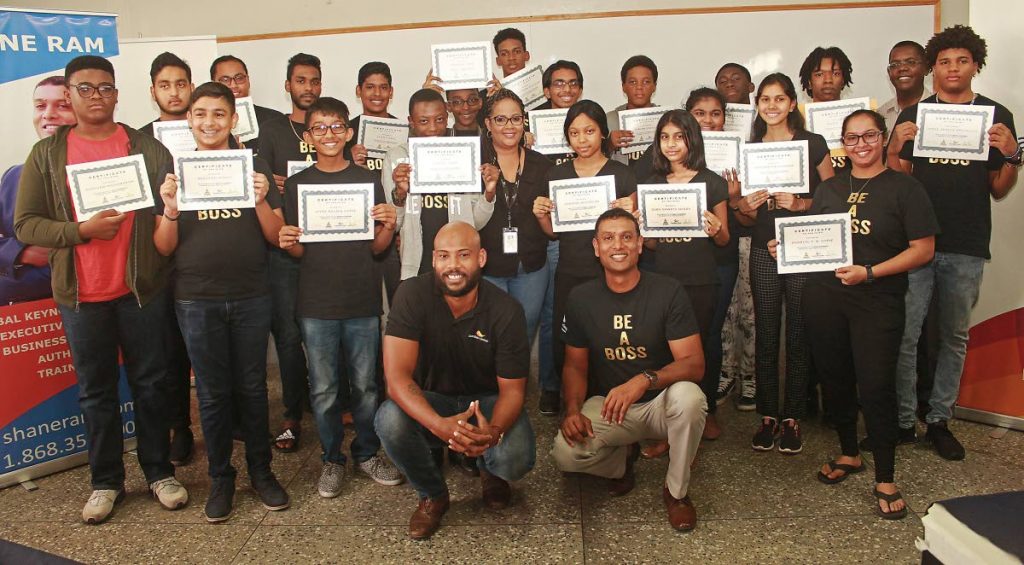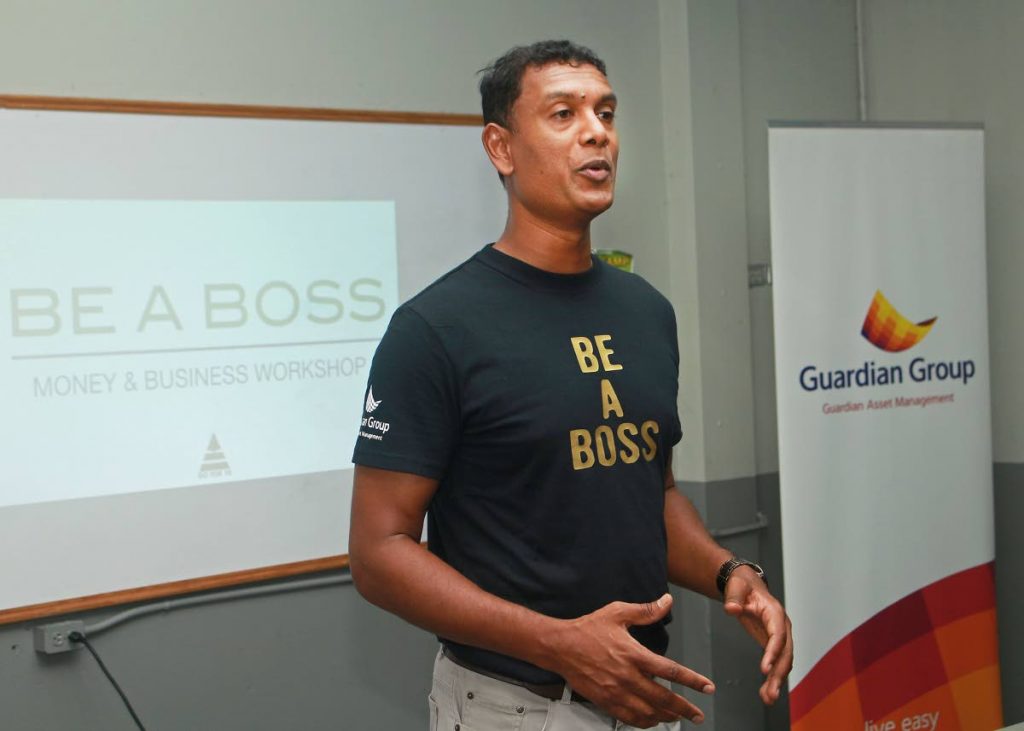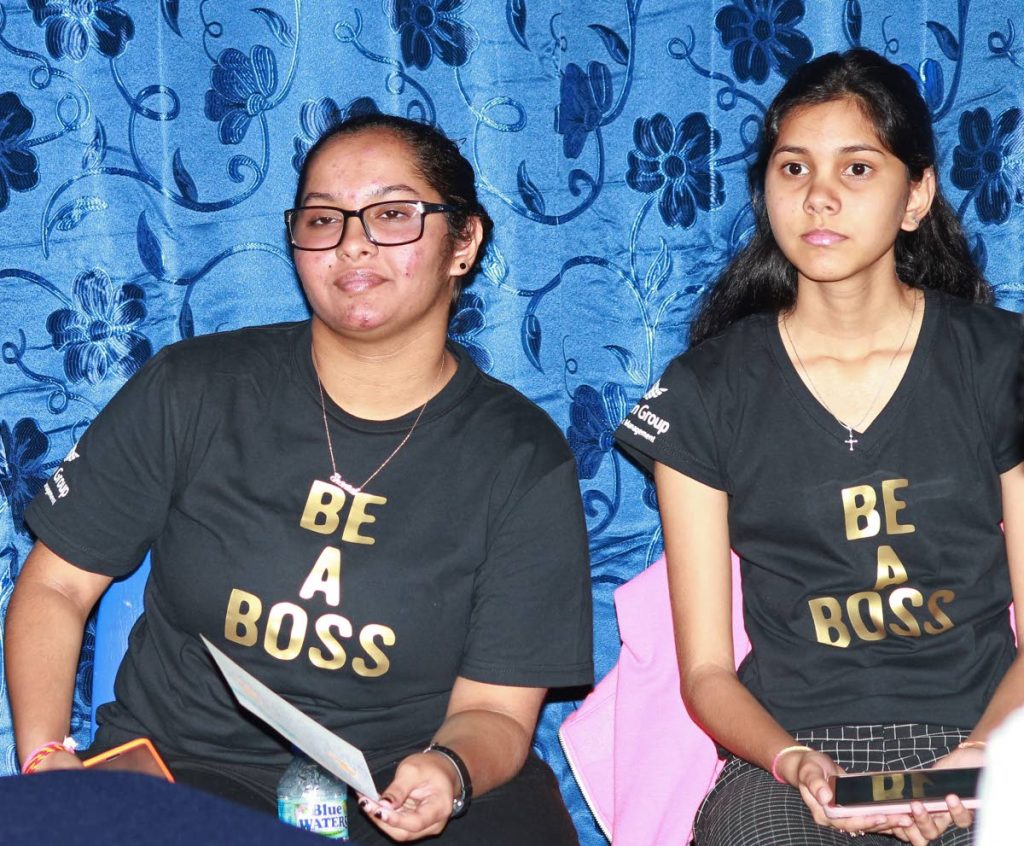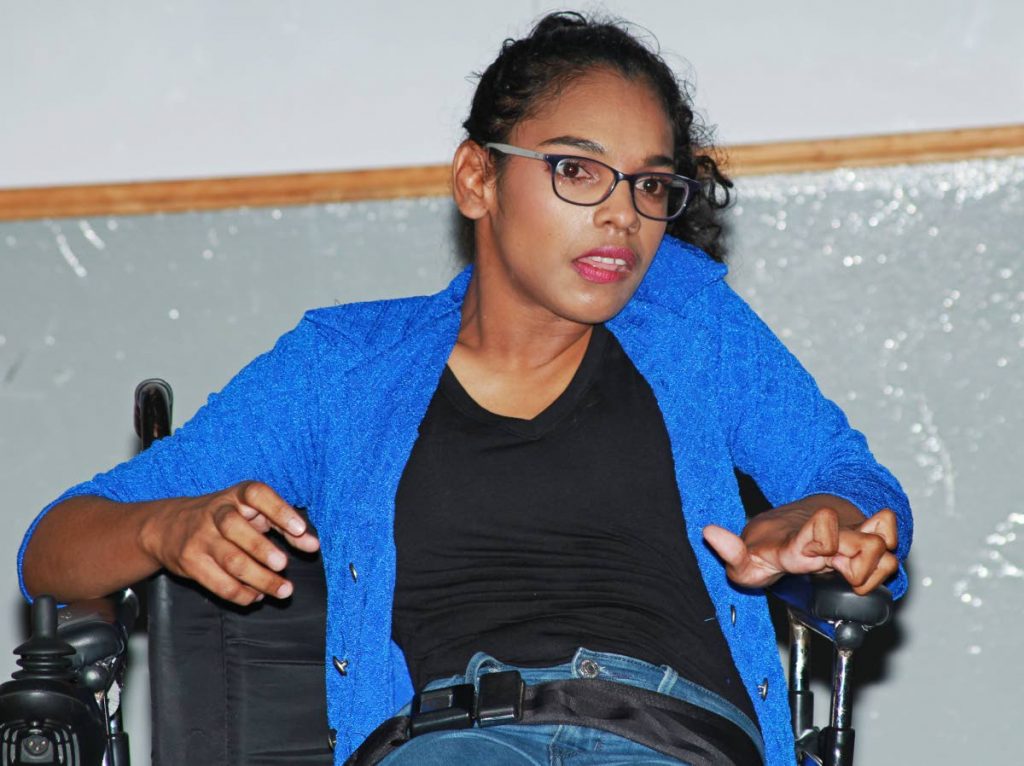Money boot camp

Money, personal development coach Shane Ram believes, is like oxygen. “Life’s going to be pretty difficult without it.”
It doesn’t help that for young people, learning to manage money isn’t generally part of their early education. That’s why this year, he, in partnership with the Guardian Group, hosted the first money camp for teenagers, teaching the basics of increasing one’s income through investing in not just oneself, but others.
“The traditional education system really doesn’t prepare kids now for the future. It just happens that higher education, even up to university and post-graduate level, don’t teach us how to earn, growing and investing money. That’s one of the ideas behind this camp. It’s about life skills for the future,” Ram told Business Day in a brief chat following the last camp in San Fernando’s graduation ceremony.

The job market is shrinking, he said, and it’s impossible to know what it will be like when these kids graduate, but what is absolutely certain is that if they learn how to manage money and build a business, whatever their needs are at that time, they won’t just survive, they will thrive.
Nearly 100 teens from the west, east and south Trinidad participated in the course – an intensive one week “money boot camp” held in Westmoorings, St Augustine and San Fernando.
“We expected about 25 participants per location so this exceeded expectations,” Kimberly Pierre-Samai, Guardian’s marketing manager said.
She had found Ram’s advertisements for the course on social media networking site LinkedIn and contacted him because the course was on par with Guardian’s mission to increase financial literacy among young people.
“We (have already) started to do presentations at schools teaching young adults about money management because we find that is lacking in Trinidad. Only when they start working or they have a need, then they start looking at how they can save money – it’s not something parents naturally teach their kids.”
Feedback has been positive, she said, with requests from adults for a similar “camp” for them, as well as requests for internal presentations within the group.

One parent, Kevin Ransome, was happy that his son, 16-year-old Kerrell, had an opportunity to learn money management from such a young age – something he felt was lacking in his own youth. “The reason we (as parents) chose this course is because nobody taught us about money. (It’s important) having kids from this point in life understanding (how to manage money) and how to create wealth. I am happy to have him here. I would endorse it because this was never taught to (me). The knowledge I have today, I am happy to see someone taking the initiative to teach young people. I am very happy to have my son get some of this information that can propel him in life.”
Kerrell, for his part, admitted that at first he didn’t want to attend but during the course he started liking it more and more. “I thought it was a very fun programme. I believe I learnt to manage money better,” he said. He added that he wasn’t sure just how he was going to apply his knowledge yet since he was studying science at school. Like each of his colleagues in the course, Kerrell had to give a brief presentation on what he learnt at the graduation ceremony.
The core elements of the course included different ways of earning money, how to use one’s own efforts, other people’s efforts, other people’s ideas and other people’s money. “We went through all the different and current investment opportunities – things like mutual funds, bonds, stocks, foreign exchange, cryptocurrency, real estate. So that’s on the money and investment side. Then we did business – how to spot business ideas and opportunities, starting a business to solve problems, what problems does one see out there and all the different facets of creating this business, including marketing, sales, funding using angel investors, crowd funding and so on, as well as marketing and sales on social media, which is cheap and expansive,” Ram explained.

He also got the youths to think internationally, not just within Trinidad.
“The response has been amazing. One child said it changed his life,” he said proudly. “That’s what we aimed to do.”
Ram has a bachelor’s degree in business from UWI, and then went to England and studied e-business at the University of Surrey, followed by another master’s in strategic thinking from Herriot-Watt University. He worked at Powergen, Yara and Digicel, before founding his own consulting company. As an executive coach and life coach, he said: “I tell the kids I know what their life will turn out to be because I have a crystal ball. I teach their parents and other adults who may struggle with a lot of things and money is one of them.”
Ram believes his camp is the first of its kind in Trinidad. What sets him apart is that he’s also an entrepreneur and teaching from experience.
“There are a lot of people who like entrepreneurship, they may have studied it, but they still have a job. In order to make extra money they start to teach. So, what we have is people with jobs teaching entrepreneurship and that’s not really working. I think we need people who want to give back and knowing that they can give back and still earn. I make no bones about charging for the camp because it’s a business and I want to still be able to do it profitably.
“We talked about social entrepreneurship and this is one of these ventures, where we give out something good and proper and still get a return, which I find is a challenge for a lot of people who teach entrepreneurship who have challenges themselves. The blind can’t lead the blind.”
The camp cost $1,200 for the week, all day. “It’s like a mini MBA. It’s really intense but we cut out the fluff and hit the key points so it plants a seed for them to go out and learn.”
After the success of this year, he is excited to do the camp every year, and even add some additional programmes for millennials, recent graduates and working adults, since so many of the parents have been asking him for their own session.
So, is the country suffering because of a lack of financial literacy? Absolutely, says Ram.
“One the things I showed the kids is a financial statement for a local financial institution that earned billions in interest income because people are spending more than they have so they are borrowing – loans, credit cards, whatever, they are borrowing. So, there’s income and expenditure and if expenditure is more than income, people borrow. The trouble is we haven’t actually been taught how to increase our income. I’m not saying don’t have your desires and your wants and needs, and so on, but learn how to increase your income. That I think is the key challenge because most of us are borrowing and borrowing to pay for what we want rather than increasing our income to be what we want to spend.”

Comments
"Money boot camp"